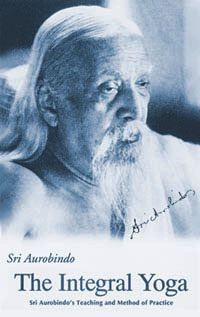Consciousness and health
Why do we want a new approach to medicine and health?
We are witnessing an interesting transition in the perspective of health as there is a perceptible shift from the ‘illness-repair’ model to a ‘well-being’ model. The shift has primarily occurred in the consciousness of humanity with ramifications at various levels. It started to manifest simultaneously from different angles, viz.
(a) A growing interest in ecological awareness has been building up in the last few decades. It did not gather momentum solely for the love of environment but with the realisation that the environment would no longer be able to support human existence if it continued the same old way.
(b) A realisation began to dawn that a balance between nature and human existence needs not only ‘action’ at the environmental level but also at the human level. This automatically implied that the health of the human species has to be preserved in such a way that its natural strengths, assets and defences are not tampered or destroyed but rather reinforced and rejuvenated.
(c) Questions began to be raised whether the healthcare system had become overzealous. Our body has been invaded with chemicals in an unprecedented way during the last fifty years. We have been infused with all sorts of medicines as well as pollutants in the form of pesticides, make-up materials (creams, sprays, scents), emissions of all sorts of gases around us (vehicular gas, anti-mosquito and anti-insect fumes, cigarette fumes) and what not!
(d) There has been a spontaneous instinct not to take unnecessary medicines. The ‘psyche’ of the patients as consumers has undergone a qualitative change. There has been a growing interest all over the world to understand the truths embodied in the various complementary and alternative systems of medicine that exist parallel to the mainstream.
(e) With the growing importance of the psychosomatic dimension as evidenced in diseases like essential hypertension, diabetes mellitus, rheumatoid arthritis, bronchial asthma, etc., an emphasis on lifestyle management has been consolidating. This phenomenon necessitated techniques like hatha yoga, stress management and relaxation to be included in the armamentarium of mainstream healthcare. Lifestyle management also ushered in aware-ness of correct diet, importance of exercises, and modification of one’s vital urges.
(f) With the emergence of newer diseases like HIV, with more attention given to terminal subjects and with a growing geriatric population, the healthcare system has been forced to acknowledge that existential issues as well as metaphysical questions cannot be de-linked from healthcare delivery.
(g) With the growth of the ‘human rights’ movement, the urge to live as well as to die with dignity has come to the fore. Legal suits filed for improper treatment have their own implications but have done a positive job in making the healthcare delivery system more transparent and accountable.
(h) Finally, with the statistical rise of depression and an increase in suicides, one is tempted to ask if all our intervention strategies (pharmacological as well as psychological) have reached a saturation point and need a complete overhauling.
The net result of all these allied movements has been a shift from the ‘illness-repair’ to the ‘well-being’ model of health. This has led to a healthy appraisal of the truths contained in our traditional archives and in the complementary and alternative systems. This trend has become so important that it cannot be ignored and medical textbooks have started incorporating separate chapters on this issue — an index of ‘consumer’ demand! The healthcare industry has also taken up this idea and is devising all sorts of ‘organic’ health products to meet the new market. It is also trying to ‘patent’ age-old organic products and time-tested herbs — a sort of robbery of our ancient cultures!
A paradigm shift
The shift from the ‘illness-repair’ model to the ‘well-being’ model of health is again not a final consummation of our knowledge but a transitional stage. Why?
The answer is not merely the fact that the ‘well-being’ concept has begun to turn into another new commercial venture.
The answer is based on Sri Aurobindo’s revelation that the human being itself is a ‘transitional’ being capable of further growth in consciousness. The growth in consciousness can be so dramatic that higher models of man can emerge leading to the eventual emergence of a very high consciousness (the Supramental Consciousness) on earth.
If this endeavour of growth in consciousness is not pursued, then humanity will be faced with a resurgence of the primitive barbarism in man. We know that the individual’s subconscious (what Freud termed as ‘unconscious’) contains unresolved conflicts that can surge up as neuroses as well as relapses of chronic diseases. Similarly the subconscious of the human species contains unresolved barbarian conflicts, internecine rivalries and atavistic traits. All these can surge up and like a tsunami, volcano or earthquake; usurp and destroy all that we have achieved in civilisation and make a mockery of our ‘well-being’ model of health (we are already witnessing the beginnings of this resurgence of barbarism in various incidents around the world — in our killing fields, in our teenage crimes, in our ‘modern’ cannibalistic acts, in our new diseases like HIV).
The evolutionary growth
Sri Aurobindo envisages an evolutionary growth in consciousness leading to a transformation of the present human structure into newer and higher models. He has foreseen that the newer models of man will bear progressively newer characteristics like:
(a) The organs of the body will become more subtle in their functions.
(b) The body itself will not have the present rigidity.
(c) There will be a better harmonisation between the different parts of the body.
(d) The body will not be easily affected by extraneous forces as is the case now.
(e) Unique functionings ( like the capacity to bear a child without the usual way — a fact towards which genetic engineering is now proceeding) will become possible.
(f) The body will not have the grossness it now has and will be beautiful and luminous.
(g) Such ‘evolved’ human beings will form qualitatively higher ‘gnostic’ collectivities.
Naturally, our whole perspective of health has to change if it has to make itself ready for the emergence of higher models of man. The ‘well-being model has to be supplemented by a ‘growth-in-being’ model. Such a ‘growing’ model of health can be constructed if we attempt to understand the dynamics of health from a consciousness paradigm.
Sri Aurobindo’s Integral Yoga provides us with a deep understanding of the planes of consciousness that are represented both in universal nature and in individual human beings. His framework provides us not only a view of our present system but also heuristic spaces to take evolutionary steps.
It is the need of the hour to prepare ourselves for the new humanity. One of the preparations needed is a flexible, growing model of health that has not stagnated at a mere level of optimal well-being. Such a model will give rise to progressively newer concepts of health and will also necessitate the emergence of ‘new’ medicines in accordance with the demands of the Time-Spirit.
We call this approach ‘new’ because it serves a new evolutionary paradigm — ‘new’ because this paradigm has been visioned and fashioned by Sri Aurobindo for the first time in the history of the earth. Prior to him, spirituality was also dissatisfied with the limitations of the human being but gave a solution to be ‘liberated from life’, not to be born again. Sri Aurobindo is concerned with a ‘transformation’ of life and hence had to bring in a new paradigm. Our constructs of health have also to ‘evolve’ to tune into the new aspirations.
Share with us (Comments, contributions, opinions)
When reproducing this feature, please credit NAMAH, and give the byline. Please send us cuttings.




